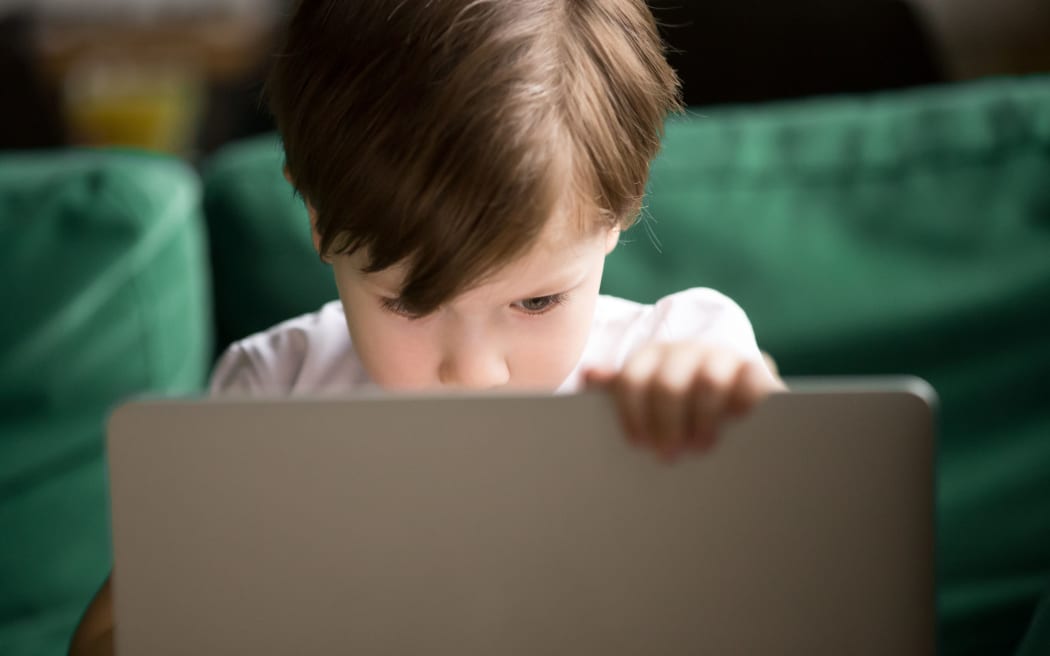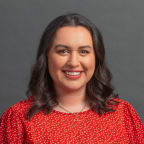
Groups calling for more restrictions on illegal sexual content say NZ's children need better protection. File photo. Photo: 123rf
Aotearoa is falling behind in protecting children from online harm, says a group wanting wider and tougher restrictions on illegal sexual content on the internet.
New Zealand's voluntary system - administered by the Department of Internal Affairs - blocks more than 400 websites depicting child sex abuse.
But Liam - not his real name - was 8-years-old when he was shown bestiality on his friend's computer.
"I was confused more than anything at eight, obviously I didn't really know a lot about the whole arrangement already. And at the age of eight to see something like what I saw, it was quite confusing, my mind was a little bit sort of shocked," Liam said.
His parents were worried and heartbroken, but Liam said their support prevented long-term harm to his mental health.
"In explaining that to them, it was obviously that that was just a video that was portrayed to just to get attention that I saw and it just wasn't a usual case scenario for everybody, to help me understand, that that is not the normal behaviour of how we operate," Liam said.
He was one of the lucky ones.
Social Worker Rachel Taane has helped students who have accidentally witnessed illegal sexual content.
She said it caused psychological harm, and many young people felt as if they had got no support.
"It not only normalises some of that behaviour, but it also can create massive psychological distress. Unfortunately children don't know where to go for support, they're quite often embarrassed to talk to their parents or their family members about what they've seen, because they're concerned about getting into trouble, having their devices removed from them," Taane said.
Most internet providers - including Spark, One NZ and 2 Degrees - were part of a voluntary digital child exploitation filtering system.
Internal Affairs Minister Brooke van Velden thought this system was working well to block "412 URLs and... stop over 1 million attempts seeing child exploitative material" - but admitted it could be better.
She said it was important the government got the balance right on what type of content it censored.
"These are websites that clearly show a child sexual abuse material and they have been blocked, that has been the right thing to do under the law. Of course there is always more work that could be done to try and improve the filter and add more URL's to that list," van Velden said
Van Velden would not talk about the department's plan to upgrade the filters, but said to expect an announcement soon.
She said all parents had a role to play to keep their children safe from harmful content.
"All parents can remain vigilant about what their children are accessing, what they are seeing online and where possible using filters that are accessible to all families with parental control to restrict what they believe should their children should not be seeing online," van Velden said
The Makes Sense campaign has a 10,000 signature petition calling for internet service providers to strengthen filters on all illegal sexual behaviour.
Organiser Holly Brooker said children needed better protection so they did not accidentally stumble across rape, slavery porn and bestiality.
She said New Zealand was far behind the rest of the world when it came to censoring this content.
"The UK has the Internet Watch Foundation blocklist which uses tech like webcrawling and hashing to search the internet for child sex abuse material and add those URLs to the blocklist. The IWF blocks on average 6000 URLs a day or up to 30,000 a day," Brooker said.
Sex Therapist and petition co-founder Jo Robertson said evidence from the DIA showed an alarming raise of this type of content.
"In their transparency report said that the volume of CSAM being shared is extremely worrying, they also quote ONE NZ saying this is an increasing issue. I think the minister communicating that the system is working well is not reflective of what other professionals and her own team is saying," Robertson said.
The petition will be handed to the Minister next month.


